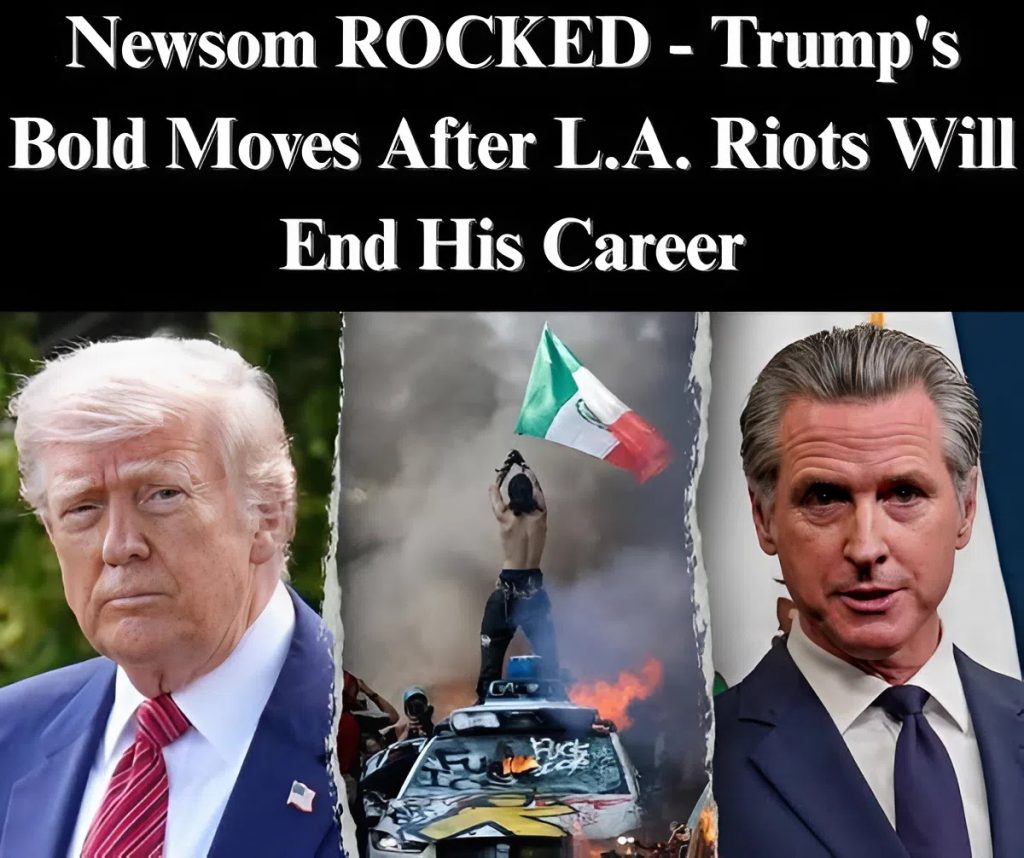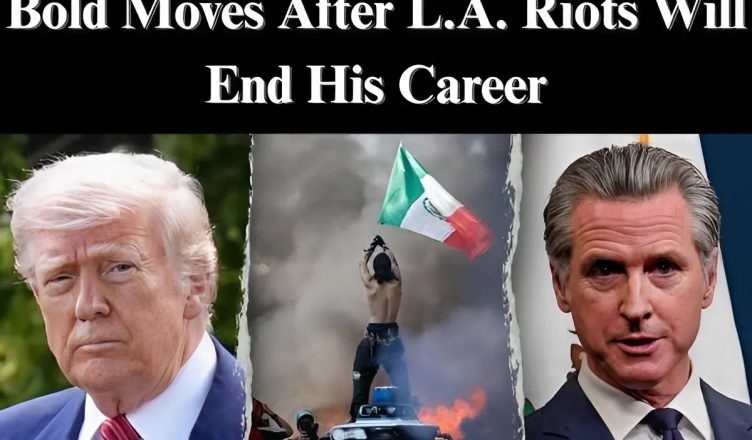June 2025 — Helicopters whir overhead, armored vehicles line the streets, and armed soldiers stand at intersections where just days ago protesters chanted slogans of hope, rage, and resistance. What began as another wave of civil unrest in Los Angeles has now escalated into a defining national crisis. And at the center of it — a single, polarizing decision: President Donald Trump’s order to deploy the National Guard.
The response was immediate, powerful — and deeply divisive.
A new nationwide survey, released just 72 hours after the troops landed, reveals the truth behind the headlines: the United States is sharply split on whether this show of force was necessary — or dangerously authoritarian.
The Numbers That Shocked Political Analysts
According to an exclusive survey conducted by Public Pulse Research, which interviewed 20,000 adults across all 50 states:
52% support the deployment, citing public safety and law enforcement fatigue.
41% oppose it, calling it excessive, dangerous, and undemocratic.
7% remain undecided, unsure whether to view the move as defense — or provocation.
Though a narrow majority appears to support Trump’s decision, the underlying trends paint a far more fractured picture of a country grappling with fear, ideology, and identity.
Who Supports the National Guard Deployment — and Why?
Among the 52% who expressed support:
68% are over the age of 50
74% identify as conservative or Republican
59% live in rural or suburban regions
61% believe local police were “overwhelmed and outnumbered”
Their reasoning is simple and urgent: chaos must be stopped before it consumes more cities.
“If the mayor won’t act, someone has to. The federal government has a duty to protect us,” said one respondent from Texas.
For these Americans, Trump’s order wasn’t a threat — it was a long-overdue return to law and order.

Who Opposes the Move — and What Are They Afraid Of?
On the other side of the spectrum, 41% of respondents strongly disagree with the deployment. Their concerns stem from a different place entirely:
85% are under 35
81% identify as liberal, progressive, or independent
66% are urban residents
72% say the deployment “will escalate violence, not contain it”
“Sending soldiers into our streets doesn’t bring peace — it brings fear,” said a protester in downtown L.A. “We’re not a warzone. We’re citizens.”
For these voices, the presence of uniformed troops signals not protection, but suppression. Not stability, but the erosion of civil liberties.
On the Ground in Los Angeles: Relief or Occupation?
In L.A., reactions are raw. In some neighborhoods, store owners welcome the military presence after days of looting and fires. In others, residents say they feel like strangers in their own city.
Rosa Morales, 53, whose store was vandalized last week:
“I finally slept through the night. The Guard may be the only reason we still have a neighborhood.”
By contrast, college student Malik Rhodes says he hasn’t left his apartment in two days:
“I hear boots marching outside my window at night. This doesn’t feel like America anymore.”
The Political Fallout: Trump’s Numbers Tick Up — For Now
Despite the backlash, the deployment appears to have delivered a short-term boost to Trump’s approval ratings — especially among older, undecided voters. His base sees the move as bold, decisive, and necessary.
But legal experts and civil rights groups warn that the long-term consequences could be severe. Already, multiple lawsuits are in motion, challenging the legality of the deployment under the Posse Comitatus Act — a law meant to limit federal military involvement in domestic law enforcement.
Democratic governors from multiple states have condemned the action as a “dangerous precedent.”
America at a Crossroads: Security or Suppression?
The question reverberating from coast to coast is no longer just about Los Angeles. It’s about what kind of country America is becoming. Is this the reassertion of control in chaotic times? Or the first clear step toward martial law?
For now, the streets remain patrolled, the protests continue, and the country holds its breath — waiting to see what will happen next.
One order. One city. Fifty states watching. And beneath it all — a nation struggling to recognize itself in the mirror.
